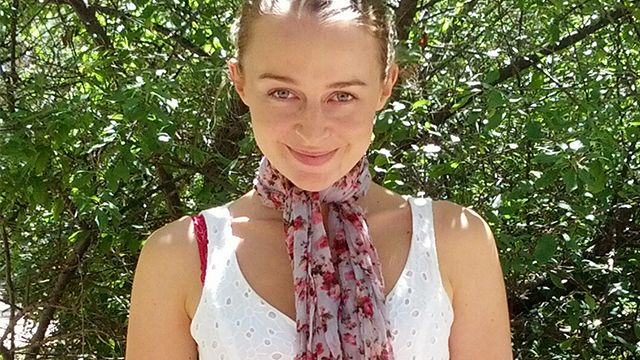University Medalist's unwavering love of linguistics and philosophy

2016 University Medalist Dominie Dessaix (image supplied)
Dominie Dessaix, who graduated with a Bachelor of Arts (Hons) and earned the 2016 University Medal, came to The Australian National University (ANU) “a bit late”.
She started at the ripe old age of 21, but thinks it’s good that this happened the way it did because it gave her interests a few years to settle.
“That meant that I’ve had no changes over the course of my degree; I just felt really certain from the beginning,” she says.
What Dominie became certain about was her passion for Philosophy and Linguistics.
She entered university with her partner, who also studied Philosophy. They chose ANU together, and five years on, both have applied to stay at ANU to do their PhDs.
“I’ve enjoyed all my courses immensely,” Dominie says.
“In linguistics, there’s a real sense of students being encouraged to do more.”
She cites the example of Linguistics convenor Professor Jane Simpson encouraging her to submit an abstract for a conference that was held in Japan in June 2016. Her abstract was accepted, and resulted in Dominie presenting a paper overseas for the first time.
“I was talking about some people’s work in front of them,” Dominie marvels.
“It was a little bit intimidating. But mostly exciting, to see what their comments might be when you’re making sort of criticisms about their work and they’re sitting in the front row.”
She smiles and adds: “I got some good comments, some probing questions. I think that fosters discussion.”
Dominie’s paper related to Natural Semantic Metalanguage (NSM), a theory pioneered by ANU linguist Professor Anna Wierzbicka that there are concepts universal to all languages.
At this stage, Dominie plans to incorporate NSM into her future PhD research, examining it from an evolution of language perspective. Beyond her PhD, she’d like to pursue a career as an academic.
She says the profession allows one to pursue interesting questions; such as what a science of language should be like and the nature of thought.
“I mean, who wouldn't want to do that?”
She laughs: “That's how it feels to me, anyway!”